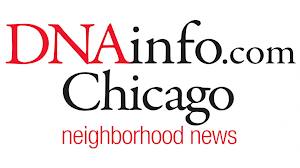Citizens Taking Action
for transit dependent riders
The next monthly open meeting of Citizens Taking Action will be on Monday, April 13th, from 7-9:00 PM. at 77 W. Washington, 4th Floor
Study of CTA Cuts in Service Since 1947
CTA Groups Oppose Bus Rapid Transit (BRT) Projects
Say Restore Routes and Schedules Instead, Express Buses and 24 Hour Service
Press Release July 12, 2013
Citizens Taking Action for transit dependent riders
Charles Paidock cpaidock@hotmail.com (312) 714-7790
Kevin Peterson transitcatt@hotmail.com (773) 896-8126
Citizens Taking Action, a transit advocacy group comprised of transit dependent riders, has come out in opposition to plans to install bus rapid transit (BRT) on streets such as Ashland and Western Avenues. The organization has studied and compiled a list of bus routes either eliminated altogether, or with severely reduced hours of service, since CTA was established in 1947. It maintains that showcase projects like bus rapid transit (BRT), at costs of upwards to 10M per mile, simply don't make sense when people are unable to get to work or get home, using conventional buses and trains, due to a recent series of service cut-backs the past few years.
Charles Paidock, Secretary, said that: "One has to look at the system as a whole, especially if you are a transit dependent rider, and if public transit is to seriously be considered as an alternative to owning a car. The number of cuts in routes and schedules have come so swiftly lately that we haven't had time to update our data. Of particular concern is when buses stop running earlier and earlier, and passengers have no way of getting home, and are left stranded if they miss the last bus. We are looking into how many neighborhoods are without 24 hour service, which is significant. Only two El lines operate all the time. And only very rarely is there a public hearing before changes are made in routes or schedules."
Kevin Peterson, another member of the group, said, "If you compare CTA schedules over the past 3 or so years, the list of routes has been reduced significantly. Also, the information on the system map doesn't at times match the actual schedule. The signs CTA puts up on poles tell your nothing. There's a reason for that. CTA will shorten the beginning or ending time on a route without notifying passengers. It's almost impossible to keep up with all of the changes to the system."
Mr. Peterson added that: "CTA eliminated express buses on Ashland and other routes, claiming that they were not necessary, and not allegedly attracting enough ridership. So now CTA wants to spend money on new buses and stations for a service that it said was not useful to the public, by their own admission. If they had really decent service, without bus bunching, and 60' articulated buses, none of this would be necessary, and we wouldn't be having this discussion."
In addition, the group feels that if you are going to spend this much on new infrastructure, that a light rail system, as is being presently put in about 25 other cities across the country, would be preferable to buying a new fleet of BRT buses, with doors on the left, which cannot be used elsewhere It is generally felt that passengers prefer taking trains to buses. New light rail systems are emission free, and although expensive, the vehicles last decades longer than buses, and can be boarded at street level without the need for steps or platforms.
Another group of citizens have gotten together in opposition to BRTs, called the Ashland-Western Coalition, a volunteer group of residents, churches, schools, businesses, and community organizations, that have expressed serious concerns over reduced parking and losing traffic lanes in both directions on one of the city’s most used north-south corridors. The coalition is encouraging the CTA to improve bus service on Ashland and Western by modernizing the popular express buses that operated along both streets from 2002 through 2010. Those buses stopped every half a mile and at CTA stations, and ran concurrently with standard buses, which stopped about every 1/6 or 1/8 of a mile.
Typical Sign: Notice of Revised Service Hours (service will start later and/or end earlier)
Routes with Less Frequent Service
Current Owl Serivce

